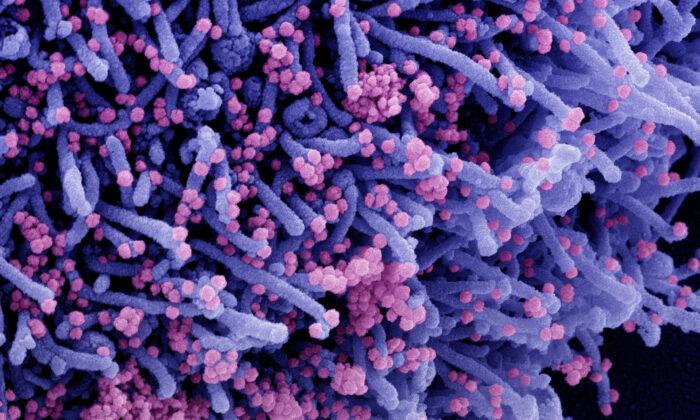Researchers in a landmark new study have discovered a sequence within the Pfizer mRNA vaccine that produces an “unintended immune response” in the body, which experts are calling a massive “developmental and regulatory failure.”
Synthetic Messenger Ribonucleic Acid (mRNA), such as that used in Moderna and Pfizer vaccines, enables the body to create a specific spike protein mimicking SARS-CoV-2. The body reacts to the foreign protein and generates protective immunity, which theoretically neutralizes the real virus when it enters the body.
The MRC team redesigned the mRNA vaccine to prevent further harmful immune responses from the spike proteins.
“The researchers identified that bases with a chemical modification called N1-methylpseudouridine—which are currently contained in mRNA therapies—are responsible for the ‘slips’ along the mRNA sequence.”
Re-Engineering mRNA
The team reengineered the error-prone genetic sequences in the synthetic mRNA to avoid these unintended and “off-target” effects.“We can remove the error-prone code from the mRNA in vaccines so the body will make the proteins we want for an immune response without inadvertently making other proteins as well. The safety concern for future mRNA medicines is that misdirected immunity has huge potential to be harmful, so off-target immune responses should always be avoided,” said Dr. James Thaventhiran from the MRC team, who is also a practicing clinician at Addenbrooke’s hospital.
Biochemist Professor and MRC team member Anne Willis said that the redesigning work presents “both a concern and a solution for this new type of medicine.”
Ribosomes in cells produce proteins from natural and synthetic mRNAs, and a precise positioning of the ribosome on the mRNA is needed to make the right proteins. The ribosome ‘reads’ the mRNA sequence three bases at a time, and any tiny deviation that happens here “massively distorts the code and the resulting protein,” said the Cambridge press release.
When the ribosome misreads the mRNA and ends up with unintended amino acids, the mutation is known as a frameshift.
“When the ribosome is confronted with a string of these modified bases called N1-methylpseudouridine in the mRNA, it slips around 10% of the time, causing the mRNA to be misread and unintended proteins to be produced—enough to trigger an immune response. Removing these runs of N1-methylpseudouridine from the mRNAs prevents ‘off-target’ protein production.”
Fundamental Failure
Although the MRC team insisted that the unintended immune responses were found to have no ill effects, expert responses to the study claimed the safety concern revealed a more fundamental failure of the scientific and regulatory communities in approving the COVID mRNA vaccines.Authors said that according to WHO guidelines for mRNA vaccines, “manufacturers should provide details of ‘unexpected ORFs’ (Open Reading Frames),” referring to cellular modification on a DNA level.
“Given that this study was conducted under the auspices of the United Kingdom Government, we must assume UK regulators, manufacturers, and international regulatory agencies, including FDA, were apprised of the data many months ago.
“We await their account of what steps they have taken to investigate why the formation of off-target proteins was not discovered sooner, what toxic effects they may have caused, and what steps they are taken to prevent harm in the future and to inform the public of these findings.”
Social Responses
In a Dec. 6 post on X, Dr. Jonathan Engler said: “This is devastating. A design flaw in the mRNA injections results in them making random proteins which will be massively pro-inflammatory. Because the product is distributed throughout the body, this happens everywhere. This likely explains the huge variety of immune disorders reported in association with these products.”Supporters of the study claimed that critics were making an issue unnecessarily.
“Coronaviruses have evolved to require frameshifting as part of their replication cycle to make their proteins.”
The three major classes of COVID-19 vaccines are mRNA, vector, and protein subunit vaccines. The Pfizer and Moderna COVID-19 vaccines use mRNA technology, while AstraZeneca and Janssen come under the vector category. Novavax is a protein subunit vaccine.
There are multiple studies pointing to people suffering from adverse events after being vaccinated.








